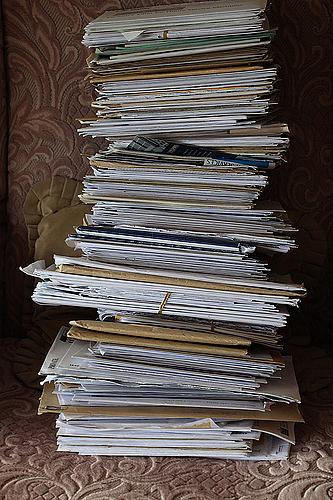Beat the Clock: How to Turn That Pile of Notes into a Blockbuster

The latest in a series of posts about how to manage a big reporting project.
The best reporters are in a tough position. Their first love is news gathering, digging, tracking, hunting, cajoling, puzzling and un-puzzling. They are detectives without the persuasive power of a badge. And yet they also have to write it all down.
One of my first journalism mentors, Bob Anez at the Associated Press, used to say that he thought of himself more as a reporter than a writer. But what made so many of Bob’s stories read so well was that he knew how to nail the story. If you gather the most powerful facts and quotes and telling details, the story can be told many different ways. It’s the strength of your reporting that will hook readers and keep them interested.
But I know that after weeks or months on a project the “write it all down” part freaks some of you out. So here are five tips for making it go more smoothly.
Constantly update your outline. I have mentioned this in most of my previous posts in the series. No tool is more valuable to you than a detailed outline. Most of my posts start as outlines weeks in advance. (I started this one back in September.) Every time you leave an interview or find some other piece of information that advances your story, stop and add it to your outline. One way to make this easy is to keep a copy on your phone or even just to type yourself a quick email when you get into your car. If you send yourself the one quote that you know will be high in your piece, you are more likely to remember it just from the act of typing it out. You also are making sure it doesn’t get lost in your pile of notes.
Think of your project as breaking news. It’s Wednesday, and your editor tells you to give her a draft of the first part of your series by Monday. You can take three days and the weekend to mull it. Or you can sit down and write the story as if you are covering a wildfire threatening a small town. I like the wildfire approach. First, your story should be about as exciting as a wildfire if what you have found is any good. Second, writing fast tends to bring the best material to the surface of your brain. Don’t worry about finding every last quote you want to include or describing the sweater someone was wearing or the way the house smelled as you talked. Just put a note to yourself like, [quote about drinking antifreeze behind the barn.] If you finish by the end of Wednesday then you can go on to the next step.
Fill the blanks. Now that you have the basic draft, go through your notes and try to fill the holes in your story with the details that matter. Pick the best quotes, the best descriptions and the key facts that advance the story. You might find that your lead changes or that you completely missed a key finding that should be included in your nut graph. That’s great. Just make those adjustments. But be brutal about what you include. Here’s why.
Don’t include something just because it was hard to get. One thing that can kill a great story is a tangent thrown in just because an interview subject was hard to fact was hard to unearth. If you are writing about how a corrupt political operative took a city for a ride with a too-good-to-be-true investment scheme, do you need to describe the photograph you found of him after he won a third-grade spelling bee?
Ask your mom to read it. I actually used to do this all the time before I would turn a story in to my editor. My mom is one of the best thinkers I know and, after many years of working as a reporter and editor, she has a better sense of the craft than many moms. But she also would often come to the story knowing very little of the back story. Your editor will have been hearing about your reporting process and won’t have the necessary distance to tell you what works in your piece and what doesn’t. Even other editors in the newsroom or reporters likely will know enough about the subject to be biased one way or another. So call your mom, your sister, your best friend. Tell them that they will be honest if they love you because your story is about to go out into the cruel world, and you would rather have it be fixed now than to have it be ridiculed or, worse, ignored.
Have some suggestions for how to beat the clock? Send me a note at askantidote@gmail.com or via Twitter @wheisel.
Image by Keith Williamson via Flickr
Related Posts:
Beat the Clock: Planning a Big Journalism Project While Doing All Your Other Work
Beat the Clock: Lassoing and Taming Your Journalism Project
Beat the Clock: Put Your Calendar to Work While Reporting Your Project

